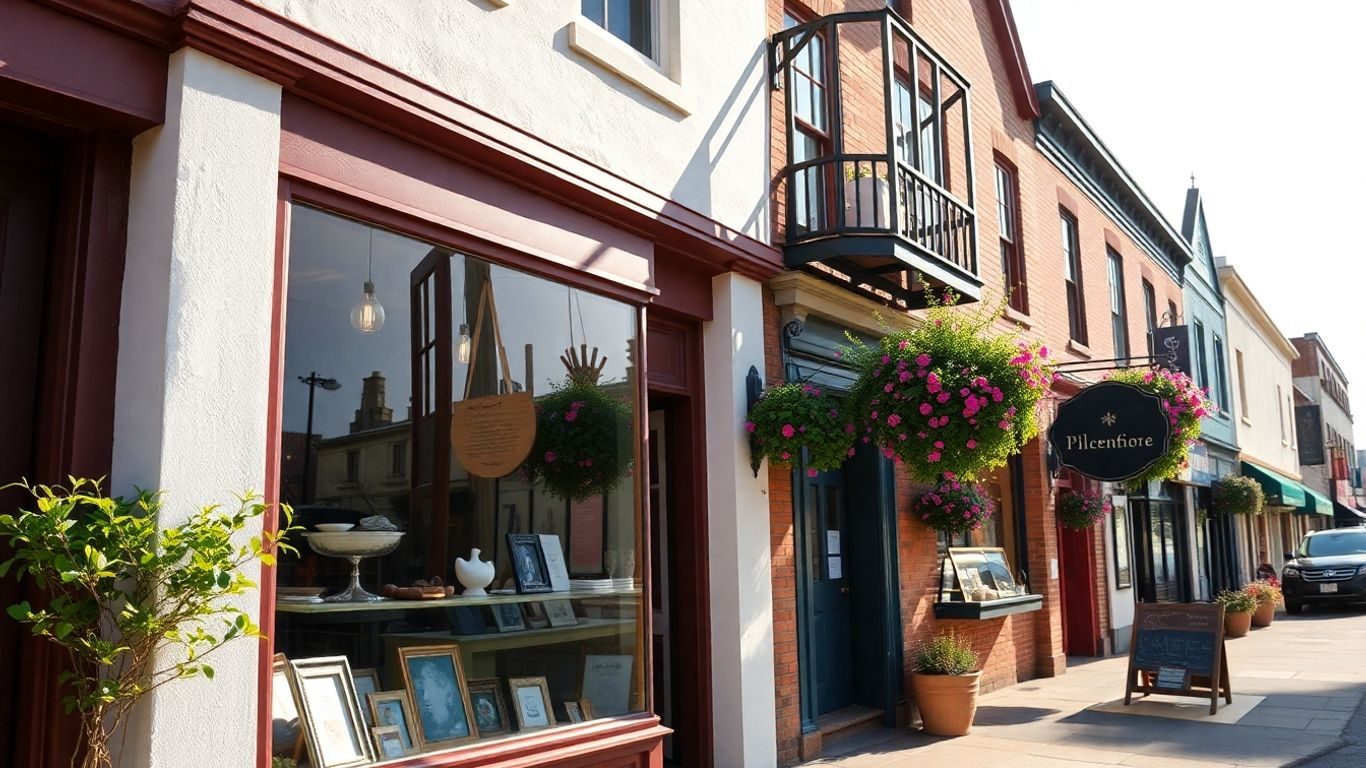Francize sustenabile care câștigă teren în România

In recent years, sustainable franchises have been steadily gaining ground in Romania. These businesses are not just transforming the market but also changing how consumers view sustainability. With a growing demand for eco-friendly products and services, sustainable franchises are reaching new heights of success. Brands like Salad Box, which started in Cluj-Napoca in 2011, showcase how innovation and responsible management can drive both business and community growth.
Key Takeaways
- Sustainable franchises in Romania are on the rise, driven by consumer demand for eco-friendly options.
- These franchises offer economic and social benefits, including job creation and community development.
- Challenges remain, such as financial barriers and market adaptability, but opportunities for growth are plentiful.
- Investment in sustainable franchises is supported by European funds, private investments, and strategic partnerships.
- Successful franchises like Salad Box and Floria highlight the potential for innovation and expansion in this sector.
The Rise of Sustainable Franchises in Romania
Factors Driving Growth
Romania is witnessing a notable shift in its business landscape with the rise of sustainable franchises. One of the primary factors fueling this growth is increased consumer awareness about environmental issues. People are now more inclined to support businesses that prioritize eco-friendly practices. Also, government incentives and European funding have made it easier for entrepreneurs to adopt sustainable business models.
- Growing consumer preference for green products
- Availability of government grants and subsidies
- Influence of global sustainability trends
Key Players in the Market
Several key players are leading the charge in sustainable franchising within Romania. Brands like Salad Box and Floria are setting examples by integrating sustainability into their core operations. These franchises are not only focusing on profit but also on minimizing their ecological footprint. Additionally, companies like Ecosete and Agramonia are part of the F6S community, highlighting the popularity of social enterprises in the country.
- Salad Box: Innovating with healthy, eco-friendly food options
- Floria: Expanding its reach while emphasizing sustainable practices
- Ecosete and Agramonia: Prominent social enterprises contributing to the movement
Consumer Demand for Eco-Friendly Options
There’s a significant rise in consumer demand for eco-friendly products and services. People are actively seeking out brands that align with their values, which include reducing waste and supporting local communities. This demand is not just a trend but a powerful movement that’s reshaping how businesses operate in Romania.
As consumers become more conscious of their environmental impact, sustainable franchises are uniquely positioned to meet this evolving demand, offering products and services that reflect a commitment to a greener future.
This growing demand is encouraging more businesses to adopt sustainable practices, ensuring they remain competitive in a rapidly changing market environment.
Economic and Social Benefits of Sustainable Franchises
Job Creation and Community Development
Sustainable franchises aren’t just about being green; they also play a big role in boosting local economies. By setting up shop in various communities, these franchises create jobs. Not just any jobs, but positions that often focus on sustainability and eco-friendly practices. This means training locals in new skills, which can lead to more employment opportunities. This kind of growth helps communities thrive, both economically and socially.
- Local employment opportunities increase.
- New skills and training programs are introduced.
- Community involvement and support grow.
Sustainable franchises are more than businesses; they’re community partners, fostering growth and opportunity where it’s needed most.
Educational Impact on Consumers
Sustainable franchises educate consumers about eco-friendly choices. They show customers how small changes in buying habits can make a big difference for the planet. By promoting products that are environmentally friendly, these franchises help raise awareness about sustainability. This educational aspect not only strengthens the brand but also builds a loyal customer base that values sustainability.
- Consumers learn about sustainable products and practices.
- Awareness of environmental impact increases.
- Loyalty to eco-friendly brands grows.
Balancing Social Impact with Financial Success
Balancing social impact with financial success is a tricky but rewarding path for sustainable franchises. These businesses strive to make a positive difference while also turning a profit. They adopt business models that focus on reducing waste and using resources efficiently. Such strategies often lead to lower costs and higher margins, proving that doing good can also be good for business.
- Implementing eco-friendly practices reduces costs.
- Profit margins often increase with sustainable models.
- The brand image improves, attracting more customers.
In Romania, where entrepreneurial potential is on the rise, sustainable franchises are finding fertile ground to grow and succeed. These businesses are not only shaping the market but also redefining what it means to be successful in today’s world.
Challenges and Opportunities for Sustainable Franchises
Market Adaptability and Flexibility
Sustainable franchises need to constantly adjust their strategies to keep up with a rapidly changing market. This is no easy task. Staying relevant means being able to pivot quickly and effectively. Businesses must respond to shifting consumer demands and environmental regulations. Here’s what they often focus on:
- Innovation in Products and Services: Keeping offerings fresh and aligned with eco-friendly trends.
- Real-Time Customer Feedback: Engaging with consumers to refine and adapt business models.
- Flexible Business Models: Ensuring that operations can adjust to new market conditions.
In a world that’s always changing, adaptability isn’t just an advantage; it’s a necessity. Franchises that can’t keep up may find themselves left behind.
Overcoming Financial Barriers
Starting a sustainable franchise can be costly. There’s the initial investment, which can be significant, and ongoing expenses to maintain eco-friendly practices. However, various financial avenues can ease these burdens:
- European Funds and Government Support: These can provide crucial financial backing for eco-friendly initiatives.
- Strategic Partnerships: Collaborations with other businesses can help share costs and resources.
- Innovative Financing Solutions: Exploring new ways to fund operations, like green bonds or crowdfunding.
Innovative Strategies for Market Penetration
Breaking into the market requires more than just a good product. Sustainable franchises often need to be creative in their approach:
- Strategic Alliances: Partnering with like-minded businesses to enhance brand visibility.
- Community Engagement: Building a loyal customer base by actively participating in local initiatives.
- Leveraging Technology: Using digital tools to streamline operations and reach new customers.
These strategies not only help in overcoming entry barriers but also in establishing a strong foothold in the market.
Investment and Financing Options for Sustainable Franchises

European Funds and Government Support
One of the most accessible avenues for funding sustainable franchises in Romania is through European funds and government support. These funds are specifically tailored to foster innovation and sustainability. Entrepreneurs can tap into these resources to not only kickstart their business but also to maintain its growth over time. Government-backed initiatives often provide the necessary financial cushion that encourages eco-friendly business models.
Private Investments and Strategic Partnerships
Private investors are increasingly looking at sustainable franchises as a promising investment opportunity. The shift towards eco-friendly business practices has caught the eye of strategic partners who are eager to invest in ventures that promise both profitability and social impact. Forming alliances with these investors can lead to enhanced business growth and market penetration. Here’s how private investments can be beneficial:
- Access to capital that might not be available through traditional loans
- Expertise and mentorship from seasoned investors
- Networking opportunities that can open doors to new markets
Scalability and Long-Term Growth Potential
Sustainable franchises are not just about being eco-friendly; they also hold significant potential for scalability and long-term growth. As consumer demand for green products rises, these businesses are well-positioned to expand rapidly. A key component of this scalability is the ability to adapt to market trends and consumer preferences. Sustainable franchises can leverage their unique selling points to gain a competitive edge in the market.
The future of sustainable franchises in Romania looks bright, with increasing support from both public and private sectors. As more businesses align with new ESG reporting requirements, the path to sustainability is not just a trend but a necessity for future growth.
Case Studies of Successful Sustainable Franchises

Salad Box: A Model of Innovation
Salad Box, which started in Cluj-Napoca back in 2011, is a prime example of how innovation and responsible management can drive business success. Over the years, this franchise has expanded to over 15 countries, showcasing the potential of sustainable business models. Their focus on healthy eating and eco-friendly practices has resonated with consumers worldwide. Salad Box’s journey highlights the importance of adapting to digitization in business processes to develop new and sustainable business models.
Floria: Expanding with Eco-Friendly Practices
Floria has been making waves with its commitment to eco-friendly practices. By integrating sustainable methods into their operations, they have managed to reduce their environmental footprint significantly. This approach not only appeals to environmentally conscious consumers but also sets a benchmark for other franchises aiming to go green. Floria’s strategy demonstrates the benefits of aligning business goals with ecological responsibility.
Lessons Learned from Market Leaders
Successful sustainable franchises like Salad Box and Floria teach us several key lessons:
- Innovation is Key: Constantly evolving your product offerings to meet consumer demands can set you apart.
- Sustainability Sells: Consumers are increasingly looking for brands that prioritize the planet.
- Community Engagement Matters: Building a strong connection with the community can enhance brand loyalty.
These franchises prove that with the right mix of innovation, sustainability, and community focus, businesses can thrive in today’s competitive market.
The Future of Sustainable Franchises in Romania
Trends Shaping the Industry
In Romania, sustainable franchises are not just a trend; they’re becoming a necessity. As awareness about eco-friendly practices grows, more consumers are demanding products and services that align with their values. This shift is pushing franchises to adapt by integrating sustainability into their core business models. Franchises that fail to embrace these changes risk falling behind.
A few key trends are shaping this industry:
- Increased Consumer Awareness: People are more informed about environmental issues and prefer brands that demonstrate a commitment to sustainability.
- Technological Advancements: Innovations in technology are enabling franchises to reduce waste and improve efficiency.
- Regulatory Changes: Governments are implementing stricter regulations on environmental practices, compelling businesses to comply or face penalties.
Potential for Expansion and Growth
The potential for growth in sustainable franchises in Romania is significant. With the right strategies, franchises can capitalize on the increasing demand for green products and services.
- Market Penetration: Franchises can expand by tapping into underserved areas where demand for sustainable options is growing.
- Diversification: Offering a range of eco-friendly products and services can attract a broader customer base.
- Partnerships: Collaborating with other businesses focusing on sustainability can enhance brand reputation and customer trust.
The future is bright for sustainable franchises in Romania. As demand continues to rise, those who innovate and adapt will find themselves at the forefront of a thriving market.
Role of Technology in Sustainable Practices
Technology is playing a pivotal role in driving sustainability in franchises. From supply chain management to customer engagement, tech solutions are helping businesses minimize their environmental footprint.
- Automation and Efficiency: Automation tools are reducing energy use and waste, leading to more efficient operations.
- Data Analytics: Analyzing data helps franchises understand consumer behavior and optimize their sustainability strategies.
- Digital Platforms: Online platforms are enabling franchises to reach a wider audience and promote their eco-friendly initiatives.
As Romania’s economic growth continues, driven by champions in sustainable practices, the integration of technology in franchises will be essential. The path forward involves embracing these innovations to not only meet consumer demands but also to lead the way in sustainable business practices.
Building a Sustainable Franchise Network
Importance of Strategic Partnerships
Creating a successful sustainable franchise network is all about building strong strategic partnerships. This means not just teaming up with anyone, but finding the right partners who share your values and goals. Strategic partnerships are vital because they help you pool resources, share expertise, and expand your reach more effectively. When you partner with like-minded businesses or individuals, you can tackle challenges together and innovate in ways that might not be possible alone. This collaboration can lead to more sustainable practices and better outcomes for everyone involved.
Collaboration Between Entrepreneurs and Franchisors
Collaboration is at the heart of any thriving franchise network. When entrepreneurs and franchisors work closely together, they can adapt to local market needs more efficiently. This synergy allows for the sharing of valuable resources, insights, and support, which can be crucial for implementing eco-friendly initiatives. By working together, entrepreneurs can gain access to the necessary tools and knowledge to succeed in the sustainable franchise landscape. This collaboration not only enhances the franchise’s performance but also strengthens community ties.
Impact of Social Responsibility Initiatives
Social responsibility initiatives are more than just a trend; they’re a core component of building a sustainable franchise network. These initiatives can significantly boost a franchise’s reputation and community impact. By engaging in social responsibility, franchises can improve their brand image and contribute positively to the communities they serve. This can include activities like supporting local charities, reducing environmental footprints, or providing educational programs about sustainability. Such efforts not only enhance the franchise’s social impact but also attract customers who value ethical business practices.
Building a sustainable franchise network isn’t just about business; it’s about creating a community that values environmental and social responsibility. It’s a journey that requires dedication, collaboration, and a shared vision for a better future.
Conclusion
In Romania, sustainable franchises are not just a trend; they’re becoming a cornerstone of the business landscape. Entrepreneurs are increasingly drawn to these eco-friendly models, seeing them as a path to both profitability and positive environmental impact. The demand for green products and services is on the rise, and franchises like Salad Box are leading the way, showing that responsible management and innovation can drive success. As more businesses adopt sustainable practices, the future looks bright for franchises that prioritize both the planet and profit. It’s clear that going green is not just good for the earth, but also a smart business move.
Frequently Asked Questions
What is a sustainable franchise?
A sustainable franchise is a business model that uses eco-friendly resources and practices to reduce its negative impact on the environment while remaining profitable.
What are the main benefits of sustainable franchises?
Sustainable franchises create jobs, support community growth, educate consumers about sustainability, and offer high-quality products and services while balancing social impact with financial success.
How does Floria contribute to sustainability?
Floria, a leader in Romanian floral business, expands its franchise network by focusing on sustainable resources, attracting customers who care about the environment.
What strategies do sustainable franchises use to overcome market challenges?
They use innovative tactics, such as diversifying their offerings and improving customer experiences, to stay competitive and meet changing market demands.
How can entrepreneurs access funding for sustainable franchises?
Entrepreneurs can access funding through European funds, private investments, and government support programs to boost the growth of green businesses.
What is the future outlook for sustainable franchises in Romania?
The future looks promising for green businesses due to the growing demand for responsible practices, leading to broader implementation of sustainability in company plans.











